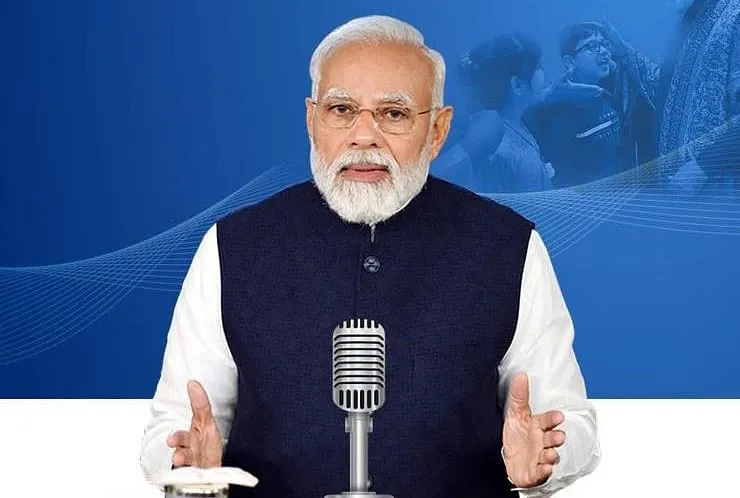The ongoing developments in Afghanistan are attracting enormous interest and concern in India. Much of this is focussed on apprehensions about their approaches on human rights. This includes the fear of many Afghan ladies who are afraid that the Taliban will impose restrictions on them like they did during their rule in the 1990s. The voices of young urban Afghan women who have grown used to the relative social freedoms of the past two decades have a special poignancy.
The visuals on global television of the desperation of those who are afraid of the Taliban and want to flee the country has caught the attention of people across the word; the Indian people are no exception. This has led, since the capture of Kabul by the group on August 15, to scarcely believable scenes at the Hamid Karzai airport in the Afghan capital. Thousands have gathered there, day after day, to somehow get aboard the evacuation flights arranged by many countries to get their nationals and select Afghans out of the country to escape Taliban rule. There is little doubt that the Kabul airport situation is partly a consequence of a monumental lack of US and NATO anticipation of how and at what pace events would proceed in Afghanistan consequent to President Joe Biden’s announcement on April 15 of the withdrawal of US forces. These shortcomings as indeed its entire Afghan enterprise will haunt the world’s premier power for, at least, years to come.
While the Indian public has followed these aspects of the current Afghan drama there are others too which require attention, especially of the country’s foreign policy and strategic community. These relate to regional and global geo-politics and strategic issues.
It is noteworthy that the Indian strategic community has taken interest as indeed it should have on the implications of Afghan developments on India’s external and strategic policies. Numerous webinars by think-tanks, academic institutions and media organisation continue to be held to examine inter alia the impact of the return of the Taliban to Indian interests.
This is a testimony of the development of the growth of a strategic and foreign policy community in India over the past few decades but particularly in recent years. This is a welcome development for like every major power India too needs a well-informed strategic community in addition to a capable diplomatic and strategic official apparatus for the pursuit of its external objectives.
All through the period of their rule the British naturally viewed India’s external environment through the perspective of their imperial interests. Major decisions regarding the external relations of their Indian colony were taken in London with inputs provided by their administrative apparatus in India which was led, after 1857, by the Viceroy and Governor-General; both positions combined in the same person.
The British began to appoint Indians at middle level positions initially and later at senior positions too in India’s judicial administration. The same was witnessed in the executive sphere in domestic aspects. From the 1920s the British also opened up the officer cadre in the British-Indian army to a limited number of Indians.
However, they kept the Indian Political Service a largely closed shop; only a handful of Indians were given entry into this service which managed British-India’s ties with the colony’s neighbourhood. Besides, the Service suffered from the infirmity of only managing a narrow range of issues and dealing with very few countries. Thus, at independence while India did have a body of administrators in the domestic sphere it lacked diplomats and strategists in the official sphere.
The situation was worse in the academia and the media. There was hardly any expertise in international relations and strategic issues. It is to the credit of Tej Bahadur Sapru and Hriday Nath Kunzru that they worked to establish the Indian Council of World Affairs (ICWA) in 1943 which sought to raise public interest on global issues which independent India would have to confront. The ICWA provided opportunities to young Indian scholars and later formed the nucleus for the Jawaharlal Nehru university’s (JNU) school of international relations. In time JNU produced some fine academics with considerable expertise in their chosen areas of study. The ICWA, under an Act of Parliament now operates under the ambit of the Ministry of External Affairs It is doing good academic work on immediate and long-term areas of India’s external relations.
The Indian government took a noteworthy decision in 1965 to establish a think-tank associated with the Ministry of Defence. This was the beginning of the Institute of Defence Studies and Analysis (IDSA). Clearly, the idea was forward looking for it sought to develop scholars who would be capable of infusing policy making with independent views in critical defence and strategic spheres.
It was only in the 1990s that Indian industry began to take an interest in creating think-tanks that would take deep and holistic interest in different aspects of India’s ties with the outside world. Some of these have developed well but much more needs to be done. There is urgent need to establish such institutions supported by industry in all regions of the country. This would enable voices from the states also to make an impact on policy making. As of now there is a concentration of both think-tanks and scholars in Delhi. The media also focuses on them for the articulation of views on these issues. There is need for a greater diffusion of expertise through the country on these matters.







